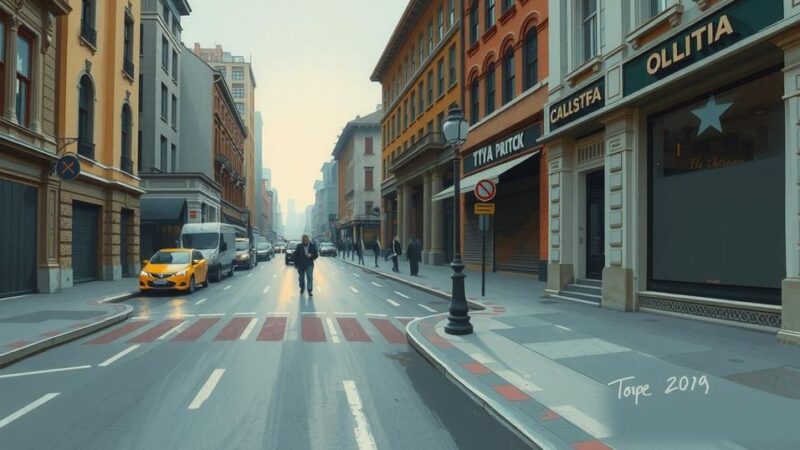Mozambique’s cities, particularly Maputo, are experiencing severe unrest following the October 2024 elections, where the ruling Frelimo party was confirmed victorious amidst claims of rigging. Protests have led to violence, looting, and a rising death toll, drawing international concern and calls for dialogue from the UN to address the escalating crisis.
Following the recent election results in Mozambique, major cities, particularly the capital Maputo, have descended into chaos, resulting in widespread disruption of both human activity and commerce. The unrest ignited after the Constitutional Council upheld controversial election outcomes, granting the ruling Frelimo party, led by candidate Daniel Chapo, a firmly contested victory with 65% of the votes. This decision has led to opposition-led protests characterized by violence, looting, and fatalities, raising grave concerns regarding public safety and governance in Mozambique.
In response to the turmoil, numerous businesses, including banks and transportation services, ceased operations, and public demonstrations often resulted in clashes with police. Areas like Maputo and Matola have seen significant unrest, with incidents of vandalism and looting described by eyewitnesses. The unrest intensified following the announcement of a confirmed victory for Frelimo, which has held power in Mozambique since its independence in 1975.
Tragic occurrences, including clashes with the police, have resulted in the loss of life, particularly in incidents such as a warehouse fire that claimed the lives of numerous individuals. While the police chief condemned the violence as criminal acts, opposition figures have accused law enforcement of exacerbating the situation. Venancio Mondlane, the opposition leader who contests the election’s legitimacy, has called for ongoing protests, urging his supporters to refrain from violent actions.
The unrest has further led to significant prison breaks, with a substantial number of inmates escaping during the chaotic circumstances, raising alarms regarding public safety. The escalation of violence has already resulted in a higher death toll, estimated at 248 individuals, amid further unrest across the nation.
The unrest has attracted international attention, with UN Secretary-General Antonio Guterres expressing concern and urging all parties to engage in constructive dialogue. He emphasized the importance of peaceful resolution methods to restore stability following the election and to address the grievances of the populace.
Mozambique has been facing escalating political tensions following the October 2024 presidential elections, where the ruling Frelimo party’s victory has been widely contested. Historical grievances concerning governance, economic disparities, and political representation have fueled opposition sentiment. The Constitutional Council’s confirmation of Frelimo’s electoral outcomes has rekindled public outrage, leading to widespread protests and violence. This context is vital in understanding the current unrest affecting the nation. The political environment in Mozambique has been tumultuous since independence in 1975, with accusations of authoritarianism and electoral misconduct frequently leveled against the ruling party. The opposition’s calls for accountability and political reform resonate strongly with segments of the population disillusioned by years of Frelimo’s dominance.
In summary, the current unrest in Mozambique stems from a contentious post-election environment, heightened by accusations of electoral fraud and governance issues. The fallout has resulted in significant civil disorder, including violence, looting, and considerable loss of life. Both local and international entities are calling for dialogue and peaceful resolutions to restore order and address the populace’s demands. The situation remains fluid, with further developments anticipated as both sides react to the ongoing turmoil.
Original Source: www.dw.com






